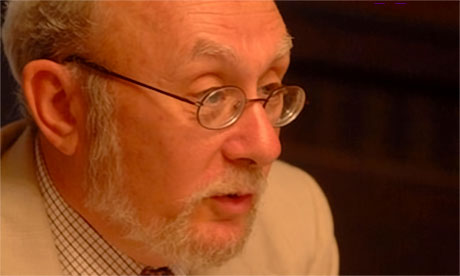Although Crux’s John Allen likes to pretend otherwise, Roman Catholicism is now clearly divided between the Party of Francis and the Party of Benedict.
Not since the days of the Jesuits and the Jansenists has the Catholic elite — clerical and lay intellectual — been at daggers drawn as it is now.
Yesterday, the New York Times nicely encapsulated the partisan divide in profiling the two big Irish-American archbishops facing each other across the Hudson — Timothy Dolan of New York and Joseph Tobin of Newark.
Can anyone doubt that by making one of the country’s most progressive bishops a cardinal and sending him into its dominant media market Francis wasn’t sending a shot across the bow of Benedictine conservatism?
On the other side, Pope Emeritus Benedict delivered a shot of his own Saturday in the form of a eulogy for the cardinal archbishop of Cologne, Joachim Meisner, who retired in 2014.
“We know that it was hard for him, the passionate shepherd and pastor of souls, to leave his office, and this precisely at a time when the Church had a pressing need for shepherds who would oppose the dictatorship of the zeitgeist, fully resolved to act and think from a faith standpoint,” Benedict wrote.
“Yet I have been all the more impressed that in this last period of his life he learned to let go, and live increasingly from the conviction that the Lord does not leave his Church, even if at times the ship is almost filled to the point of shipwreck.”
Meisner, the leading conservative in the German hierarchy, died the day after Francis announced that he would not be reappointing Cardinal Gerhard Mueller, the man Benedict selected to head the Vatican’s orthodoxy bureau (the Congregation for the Doctrine of the Faith).
Can anyone doubt that Benedict didn’t intend a criticism of the state of the Church under his successor?
But the most explicit articulation of the divide came last week, by way of an article in La Civiltà Cattolica, the Jesuit bimonthly that has led the way in promoting the Franciscan agenda.
Co-authored by editor Antonio Spadaro, the article takes aim at what it considers the unholy alliance between “Evangelical Fundamentalism” and “Catholic Integralism.”
Although, as Michael Sean Winters points out over at the National Catholic Reporter, it is possible to find flaws in Civiltà‘s account of political evangelicalism, there’s no doubt that the alliance between conservative evangelicals and Catholics promoted by the late Richard John Neuhaus and George Weigel is now a real thing. Continue reading
- Image: Fairfield University
- Interested in Catholic reaction to Francis? Get off Twitter and into the trenches
- Cardinals on opposite sides of the Hudson reflect two paths of Catholicism
- Pope Benedict XVI reflects on Cardinal Meisner (PDF) http://www.lancasterdiocese.org.uk/wp-content/uploads/2017/07/Cardinal-Meisner-RIP.pdf
News category: Analysis and Comment.




